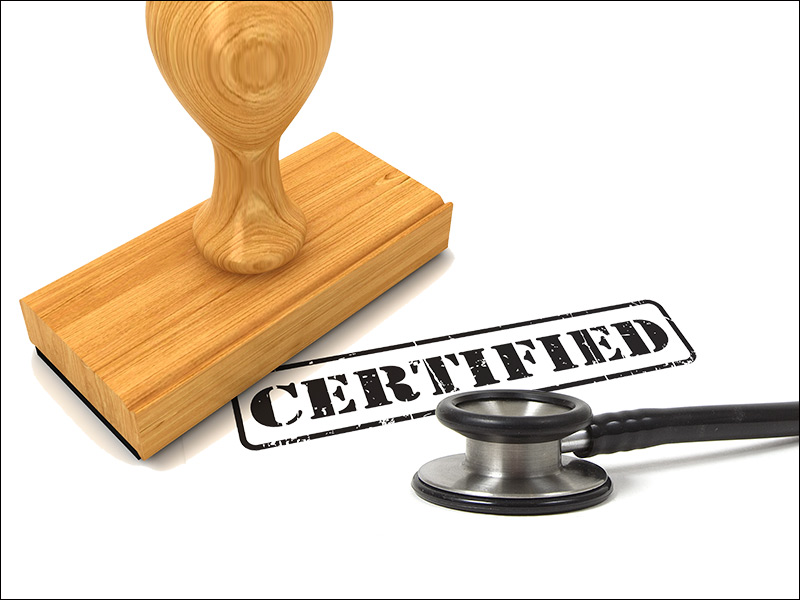Whether you’re just getting started in your physician career or have been practicing for some time, the physician credentialing process is necessary and something you should be prepared for.
This is especially true if you’re a new physician and want to start a job by a specific date — if your credentialing isn’t finished in time, you won’t be able to start practicing.
While it’s a long, arduous process that’s seemingly out of your hands, there are actually several things you can do to speed up the process and ensure everything goes smoothly.
First, we’ll look at what happens during a typical physician credentialing process. Then, I’ll share my tips for how to make sure everything goes as smoothly as possible.
What Typically Happens During the Physician Credentialing Process
Most hospitals and groups look at the following criteria during the physician credentialing process. Though these are the most common steps during credentialing, other steps may be taken, too:
1. Verifying Your School Attendance
Credentialing staff may contact any schools you’ve attended to verify education and residency or fellowship. In addition, they may contact the AMA (American Medical Association).
2. Verifying State Licensure
In order to ensure you meet the proper state licensing requirements, credentialing staff may contact state licensure associations or the Federation of State Medical Boards.
3. Employment Verification and Malpractice Carriers Check
During this critical step in the physician credentialing process, credentialing staff will contact your previous employers. They may also contact the National Practitioner’s Bank or other past malpractice carriers.
4. Background Check
Credentialing staff will outsource this task to a background investigation company, who will perform checks on your criminal and financial information. Important to note: several new companies specialize in social media background screening, which is becoming a standard part of the background screening process. Keep your profiles clean.
5. Reference Checks
References are an important part of the physician credentialing process. Even if you provide letters of reference, the credentialing staff may contact your references directly.
What You Should Do During the Physician Credentialing Process
First of all, always be upfront and honest. If you try to elaborate or cover up any information, it’s almost guaranteed the credentialing staff will find out. Put simply, it isn’t worth it, and it might delay your credentials.
Second, be sure to explain each and every gap in your professional history. While gaps often seem suspicious, they’re not as bad when you have good, legitimate reasons for them.
Finally, never leave anything blank. You’ll have to fill out a lot of paperwork to start the credentialing process, and you should check and double-check everything. Leaving an item blank (whether intentionally or on purpose) can cause significant delays in the physician credentialing process.
What You Should NOT Do During the Physician Credentialing Process
Whatever you do, don’t be tempted to modify any written documents — this includes letters of reference, letters from committees and any other document. It can be tempting (especially if you have a reference letter from someone but it’s geared toward another institution), but don’t try it. It’s very likely you’ll be caught.
Know that the physician credentialing process can be lengthy and frustrating. With this in mind, don’t act defensive or impatient toward the credentialing staff. Wait times are often out of their control.
Finally, never assume any piece of information is irrelevant. Always be thorough in your documentation. It takes a big investment of time up front, but it saves time in the long run.
Do you have any tips for saving time and hassle during the physician credentialing process?
Sponsors
Though the views expressed above are solely the writer’s, Bothwell Regional Health Center supports “The Dose with Dr. Goodhook” and is partnering with Adventures in Medicine to create an open, inspiring and insightful community for residents and physicians. Click here to learn more about ways that Bothwell Regional Health Center is making practice purposeful.




Great advise. I would add one thing. If you are working with a third party ie. Contracting and Credentialing firm, billing firm, respond to their requests for information on a timely basis. Time lost in responding is time that you can’t make up.
That’s a great point, Tom! Communication is always a two-way street, and it’s especially important to keep things moving during the critical physician credentialing process.
Thanks for stopping by! We always welcome your feedback and insights.